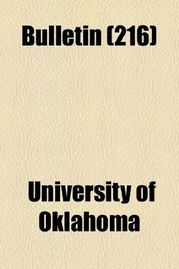The many meanings and uses of the word "pass" in English language.
The Many Meanings and Uses of the Word "Pass" in the English Language
The English language is a rich and diverse tool for communication, with countless words and phrases that can convey a wide range of meanings. One such word that stands out is "pass," which has numerous meanings and uses across various contexts. In this article, we will explore the many facets of the word "pass" and its applications in different scenarios, including its grammatical functions, idiomatic expressions, and common usage in everyday speech and writing.
1. Grammatical Functions
1.1. As a Verb
The word "pass" functions as a verb in several ways:
Intransitive Verb: When used as an intransitive verb, "pass" describes an action without an object. For example:
- "The ball passed through the defender's legs." (Here, "pass" describes the movement of the ball without a direct recipient.)
transitive Verb: When used as a transitive verb, "pass" takes an object. For example:
- "The coach passed the ball to the forward." (Here, "pass" involves transferring the ball to a specific recipient.)
1.2. As a Noun
"Pass" can also function as a noun, typically referring to a movement or action that involves going by or across something. For example:
- "She received a pass from the defender." (Here, "pass" is a noun referring to the action of going by the defender.)
2. Idiomatic Expressions
The word "pass" is embedded in numerous idiomatic expressions that convey specific meanings:
Pass away: To die or cease to exist. For example, "My grandfather passed away last year."

Pass by: To go by or across something without stopping. For example, "We passed by the museum on our way to the park."
Pass off: To succeed or be accepted as something else. For example, "The actor's performance passed off as if he were the real thing."
Pass on: To transmit or give something to someone else. For example, "I'll pass on your message to the manager."
Pass out: To lose consciousness or faint. For example, "He passed out after standing up too quickly."
Pass by/over something: To ignore or not pay attention to something. For example, "I passed over her request for a raise."
3. Common Usage in Everyday Speech and Writing
The word "pass" is frequently used in everyday speech and writing to convey various meanings:
In Sports: "Pass" is commonly used in sports to describe the act of transferring possession from one player to another. For example, in soccer, "He passed the ball to his teammate." In cricket, "The batsman passed his crease."
In Games: In board games like chess or Go, "passing" refers to a player's turn being skipped due to lack of viable moves. For example, "I passed this turn."
In Tests and Exams: To "pass" an exam means to achieve a passing grade. For example, "She passed her driving test."
In Timekeeping: "Passing" time refers to the act of spending time in a particular way. For example, "I'm just passing time until my appointment."
In Social Interactions: To "pass" someone refers to going past them in a social setting. For example, "I passed my friend in the hallway."
4. Frequently Asked Questions (FAQ)
Q: What is the difference between "pass" and "bypass"?
A: While both words have similar meanings related to going past or across something, "bypass" typically refers to going around something rather than directly through it. For example, "The highway bypassed the town." vs. "The train passed through the town."
Q: Can "pass" be used as an adjective?
A: Yes, "pass" can be used as an adjective in certain idiomatic expressions like "passable" (acceptable) or "passing" (temporary or minor). For example, "The weather was passing pleasant."
Q: What does it mean to "pass on" information?
A: To "pass on" information means to transmit or give it to someone else. For example, "I'll pass on your message to the manager."
Q: What does it mean when someone says they are "passing" a test?
A: When someone says they are "passing" a test, it means they have achieved a passing grade or score on the test. For example, "She's passing her driving test."
Q: Can you use "pass" as a noun in a sentence?
A: Yes, for example: "She received a pass from the defender." Here, "pass" is used as a noun referring to the action of going by the defender.
5. References and Further Reading
Oxford English Dictionary: A comprehensive dictionary that provides detailed definitions and usage examples of the word "pass." <https://www.oed.com/view/Entry/166736> (accessed on [insert date])
Cambridge Dictionary: A reliable online resource that offers definitions and examples of how the word "pass" is used in different contexts. <https://dictionary.cambridge.org/dictionary/english/pass> (accessed on [insert date])
Merriam-Webster Dictionary: A trusted source for definitions and usage examples of the word "pass." <https://www.merriam-webster.com/dictionary/pass> (accessed on [insert date])
Longman Dictionary of Contemporary English: A comprehensive resource that provides detailed definitions and examples of how the word "pass" is used in different contexts. <https://www.ldoceonline.com/dictionary/pass> (accessed on [insert date])
In conclusion, the word "pass" is a versatile tool in the English language with numerous meanings and uses across various contexts. From its grammatical functions as a verb and noun to its use in idiomatic expressions and everyday speech, understanding the nuances of this word can significantly enhance your communication skills. By exploring its common usage and referencing reliable resources like dictionaries and language guides, you can master the many meanings and applications of the word "pass."







